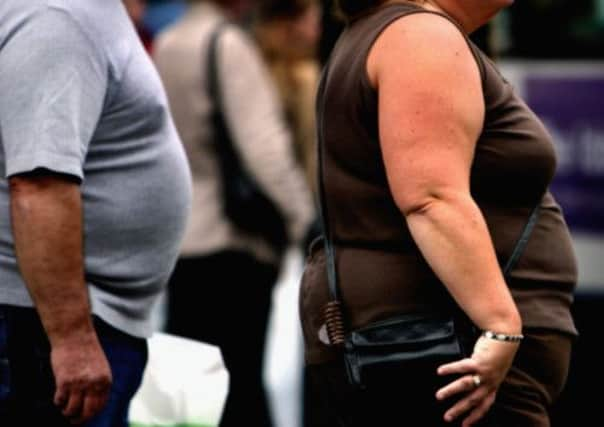Obesity: Hospitals and supermarkets ‘must do more’


Michael Matheson said organisations including health boards had to ensure healthy eating messages were being followed.
He made his comments during a BBC Scotland documentary which uncovered the amount of unhealthy food on sale in hospitals and on patient trolleys in the Greater Glasgow & Clyde Health Board area.
Advertisement
Hide AdAdvertisement
Hide AdThe programme, Scotland The Fat, also looked at reasons why Scotland is one of the world’s fattest nations and at the increasing number of Scots undergoing obesity surgery on the NHS.
Mr Matheson said: “If there is an issue where some of our boards are giving out mixed messages around healthy eating and are not giving sufficient prominence to issues around healthy eating, then I think they should look at taking action.
“If they think they’re doing enough at the present moment, then the message from government is, ‘I’m sorry, it’s not adequate, and that’s why we’re taking forward a range of measures that we want to see them taking action on’, and if they don’t, then we’re prepared to legislate where necessary.”
Scotland is second only to the United States in the obesity league table, with two-thirds of adults overweight or obese.
With obesity now costing the NHS £200 million a year, and the number of Scots undergoing weight-loss surgery on the NHS up fourfold in the last decade, doctors agree more action must be taken to change habits.
In extreme cases, bariatric surgery – the generic term for weight-loss surgery – can be performed on the NHS. However, cost restraints mean most people who ask for the surgery are refused, with the vast majority having to have the procedure at a private clinic.
According to a recent poll, more than half of Scots now rely on ready meals or takeaways at least three times a week.
The survey of 1,000 people, carried out by Mori for the BBC, found 55 per cent opt for convenience foods rather than cook dinner on a minimum of three nights per week.
Advertisement
Hide AdAdvertisement
Hide AdMeanwhile, less than a third, 27 per cent, of working-age Scots, prepare meals themselves every night.
In deprived areas, almost one in five – 17 per cent – said they did not cook a single evening meal from scratch.
Greater Glasgow & Clyde Health Board defended its cafes – which were secretly filmed by the BBC and are run by volunteers – and said it had no control over what they served.
Officials said all its hospital trolleys should have at least 50 per cent healthy products and include fresh fruit.
However, the British Retail Consortium (BRC), which represents the supermarket sector, said it was not true that unhealthy food was being promoted over healthy options.
Andrew Opie, director of food and sustainability at the BRC, said: “There’s nothing wrong with buying those things on promotion as long as you eat them as part of a healthy diet.”
But Alison Johnstone, Green MSP for Lothian, and the party’s food spokeswoman, questioned Mr Matheson’s comments about the government commitment to tackling supermarkets: “I’d like to see ministers put their money where their mouth is.
“There’s little evidence they’re prepared to get tough with corporate interests that are undoubtedly worsening our obesity problem.”